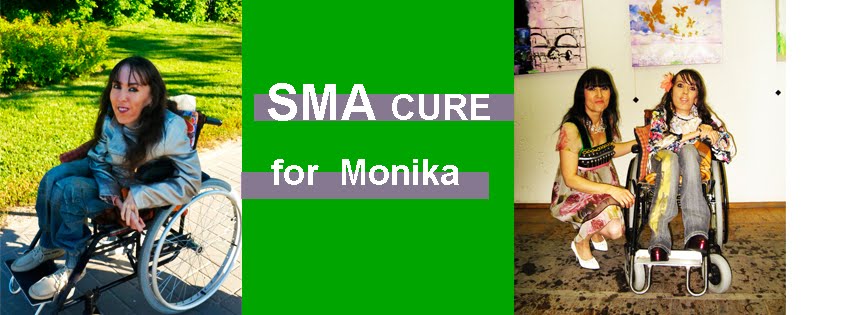I AM HAPPY TODAY FROM THIS NEWS!
Biogen and Ionis today announced that Biogen has completed the rolling submission of a New Drug Application (NDA) to the U.S. Food and Drug Administration (FDA) for the approval of nusinersen, an investigational treatment for spinal muscular atrophy (SMA). Biogen has also applied for Priority Review which, if granted, would shorten the review period of nusinersen following the Agency’s acceptance of the NDA.
“Since announcing the positive results of the ENDEAR interim analysis in infantile-onset SMA last month, we have heard from many families expressing their excitement about nusinersen. Their stories continue to inspire us and they are in the forefront of our minds as we work to support the FDA’s review of nusinersen,” noted Alfred Sandrock, M.D., Ph.D., executive vice president and chief medical officer at Biogen. “We appreciate the FDA’s collaboration with us during the application process, and we look forward to continuing this productive dialogue, with the goal of rapidly bringing the first treatment for SMA to as many patients as possible.”
In addition to the NDA filing with FDA, Biogen plans to submit a Marketing Authorization Application (MAA) for nusinersen to the European Medicines Agency (EMA) in the coming weeks. The EMA’s Committee for Medicinal Products for Human Use (CHMP) recently granted Accelerated Assessment to nusinersen, which can reduce the standard review time. Biogen will initiate regulatory filings in other countries in the coming months.
NEXT:http://www.curesma.org/news/biogen-completes-nda-submission.html
Biogen and Ionis today announced that Biogen has completed the rolling submission of a New Drug Application (NDA) to the U.S. Food and Drug Administration (FDA) for the approval of nusinersen, an investigational treatment for spinal muscular atrophy (SMA). Biogen has also applied for Priority Review which, if granted, would shorten the review period of nusinersen following the Agency’s acceptance of the NDA.
“Since announcing the positive results of the ENDEAR interim analysis in infantile-onset SMA last month, we have heard from many families expressing their excitement about nusinersen. Their stories continue to inspire us and they are in the forefront of our minds as we work to support the FDA’s review of nusinersen,” noted Alfred Sandrock, M.D., Ph.D., executive vice president and chief medical officer at Biogen. “We appreciate the FDA’s collaboration with us during the application process, and we look forward to continuing this productive dialogue, with the goal of rapidly bringing the first treatment for SMA to as many patients as possible.”
In addition to the NDA filing with FDA, Biogen plans to submit a Marketing Authorization Application (MAA) for nusinersen to the European Medicines Agency (EMA) in the coming weeks. The EMA’s Committee for Medicinal Products for Human Use (CHMP) recently granted Accelerated Assessment to nusinersen, which can reduce the standard review time. Biogen will initiate regulatory filings in other countries in the coming months.
NEXT:http://www.curesma.org/news/biogen-completes-nda-submission.html

